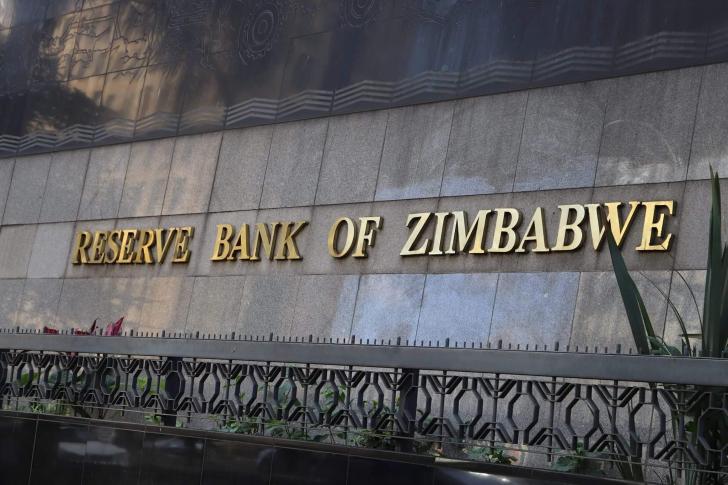News / National
Zimbabwe central bank speaks on retailers
3 hrs ago | Views

The Reserve Bank of Zimbabwe (RBZ) has dismissed claims by registered retailers that the country's economic environment is to blame for their operational challenges, pointing instead to gross mismanagement as the root cause of their difficulties. This includes issues such as failure to restock, which has forced some retailers to scale down or close operations.
RBZ Governor Dr. John Mushayavanhu made these remarks during the presentation of the 2025 Monetary Policy Statement, where he announced the extension of the Traded Finance Facility (TFF) to assist struggling retailers with working capital. Initially, the facility was reserved exclusively for the productive sectors.
"In order to address working capital challenges recently experienced by some wholesalers and retailers, the TFF has been extended to these critical sectors to enable them to restock," said Dr. Mushayavanhu. However, he cautioned that the measure alone would not resolve the sector's problems if management inefficiencies persist. "Even if they access the TFF and continue with those management gaps, they will fold," he said.
Several major retailers, including OK Zimbabwe, N. Richards, and Mahomed Mussa, have either scaled back operations or shut down some outlets, citing an unfavorable trading environment. Regional retailer Choppies Zimbabwe has exited the domestic market altogether.
Insiders, however, argue that many of the problems stem from internal issues, such as bloated management structures, extravagant perks, and questionable financial decisions. Reports indicate that some retailers misallocated cash through unnecessary land acquisitions and large dividend declarations over recent years.
Furthermore, retailers in the formal sector face stiff competition from informal traders who operate exclusively in foreign currency and do not pay statutory obligations, allowing them to offer lower prices. Manufacturers reportedly prefer supplying informal traders because they pay in US dollar cash, further disadvantaging formal retailers who are restricted by tighter trading terms.
Dr. Mushayavanhu also announced broader adjustments in monetary policy aimed at stabilizing the economy. These include reducing the foreign currency retention level for exporters from 75% to 70%, thereby increasing the surrender portion of export proceeds to 30%. The move is intended to support the use of the Zimbabwe Gold (ZiG) currency and ensure exporters meet local currency obligations.
Exporters will also have the option to invest the additional surrendered proceeds in a United States Dollar Denominated Deposit Facility (USDDDF) at the RBZ, with funds accessible in ZiG at the prevailing interbank exchange rate.
The TFF, first introduced last year with interest rates capped at 30% for borrowers, was designed to provide affordable funding to productive sectors amid commercial banks' limited capacity to finance economic growth.
Dr. Mushayavanhu urged retailers to address their internal inefficiencies and review decisions that may have led to their current challenges. "We urge retailers to review their internal systems, structures, expenses, and even undo certain strategic decisions that placed them in these problems," he said.
As the retail sector grapples with these challenges, the RBZ's intervention through the TFF provides a lifeline. However, it remains to be seen whether retailers will implement the necessary reforms to capitalize on the support and sustain their businesses in a highly competitive and evolving market.
RBZ Governor Dr. John Mushayavanhu made these remarks during the presentation of the 2025 Monetary Policy Statement, where he announced the extension of the Traded Finance Facility (TFF) to assist struggling retailers with working capital. Initially, the facility was reserved exclusively for the productive sectors.
"In order to address working capital challenges recently experienced by some wholesalers and retailers, the TFF has been extended to these critical sectors to enable them to restock," said Dr. Mushayavanhu. However, he cautioned that the measure alone would not resolve the sector's problems if management inefficiencies persist. "Even if they access the TFF and continue with those management gaps, they will fold," he said.
Several major retailers, including OK Zimbabwe, N. Richards, and Mahomed Mussa, have either scaled back operations or shut down some outlets, citing an unfavorable trading environment. Regional retailer Choppies Zimbabwe has exited the domestic market altogether.
Insiders, however, argue that many of the problems stem from internal issues, such as bloated management structures, extravagant perks, and questionable financial decisions. Reports indicate that some retailers misallocated cash through unnecessary land acquisitions and large dividend declarations over recent years.
Dr. Mushayavanhu also announced broader adjustments in monetary policy aimed at stabilizing the economy. These include reducing the foreign currency retention level for exporters from 75% to 70%, thereby increasing the surrender portion of export proceeds to 30%. The move is intended to support the use of the Zimbabwe Gold (ZiG) currency and ensure exporters meet local currency obligations.
Exporters will also have the option to invest the additional surrendered proceeds in a United States Dollar Denominated Deposit Facility (USDDDF) at the RBZ, with funds accessible in ZiG at the prevailing interbank exchange rate.
The TFF, first introduced last year with interest rates capped at 30% for borrowers, was designed to provide affordable funding to productive sectors amid commercial banks' limited capacity to finance economic growth.
Dr. Mushayavanhu urged retailers to address their internal inefficiencies and review decisions that may have led to their current challenges. "We urge retailers to review their internal systems, structures, expenses, and even undo certain strategic decisions that placed them in these problems," he said.
As the retail sector grapples with these challenges, the RBZ's intervention through the TFF provides a lifeline. However, it remains to be seen whether retailers will implement the necessary reforms to capitalize on the support and sustain their businesses in a highly competitive and evolving market.
Source - the herald











































